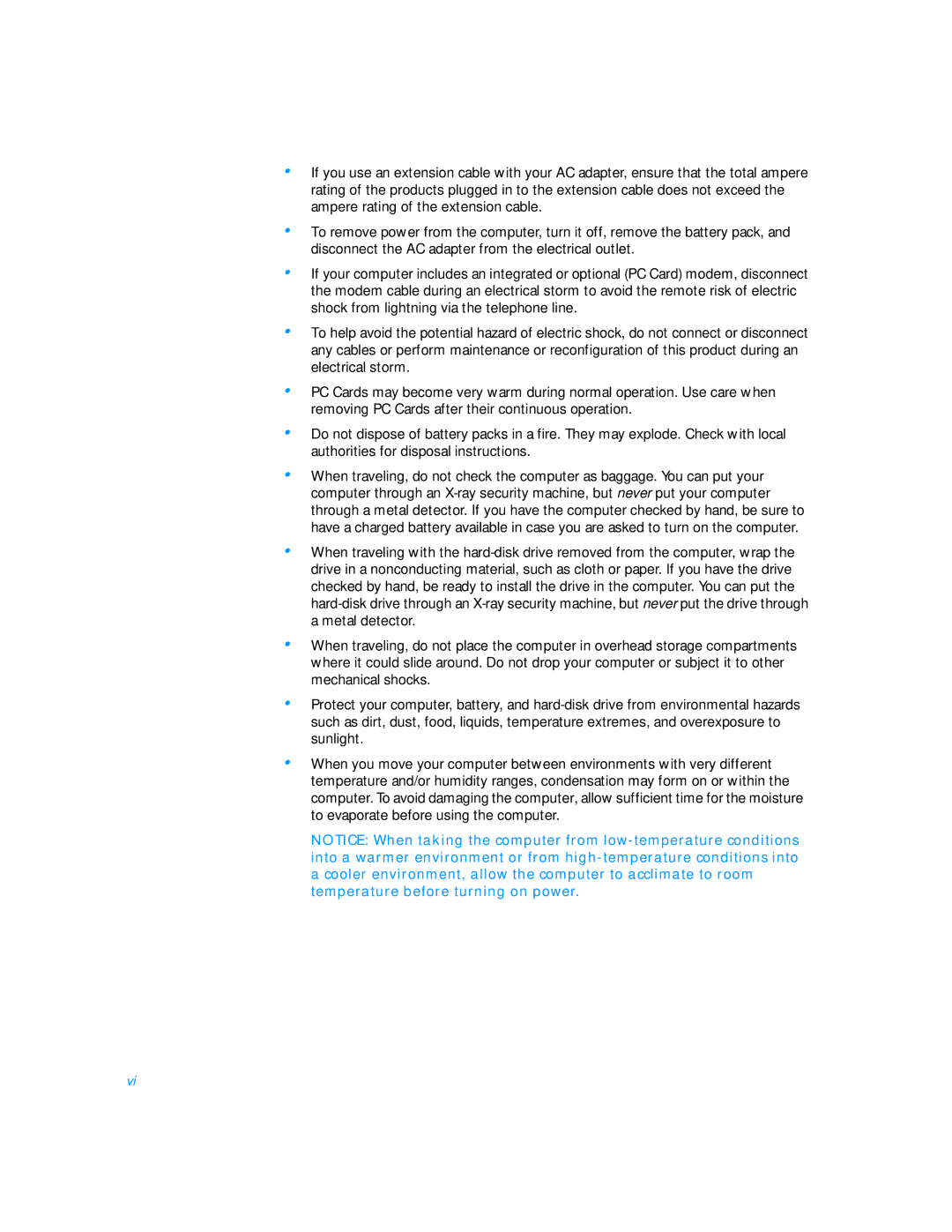•If you use an extension cable with your AC adapter, ensure that the total ampere rating of the products plugged in to the extension cable does not exceed the ampere rating of the extension cable.
•To remove power from the computer, turn it off, remove the battery pack, and disconnect the AC adapter from the electrical outlet.
•If your computer includes an integrated or optional (PC Card) modem, disconnect the modem cable during an electrical storm to avoid the remote risk of electric shock from lightning via the telephone line.
•To help avoid the potential hazard of electric shock, do not connect or disconnect any cables or perform maintenance or reconfiguration of this product during an electrical storm.
•PC Cards may become very warm during normal operation. Use care when removing PC Cards after their continuous operation.
•Do not dispose of battery packs in a fire. They may explode. Check with local authorities for disposal instructions.
•When traveling, do not check the computer as baggage. You can put your computer through an
•When traveling with the
•When traveling, do not place the computer in overhead storage compartments where it could slide around. Do not drop your computer or subject it to other mechanical shocks.
•Protect your computer, battery, and
•When you move your computer between environments with very different temperature and/or humidity ranges, condensation may form on or within the computer. To avoid damaging the computer, allow sufficient time for the moisture to evaporate before using the computer.
NOTICE: When taking the computer from
vi
